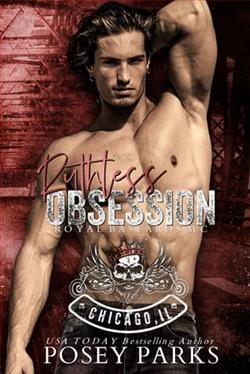Page 4 of High Season
“You saw?”
His voice was quiet now.
“Yes,” said Nina. “I saw.”
“God,” he said. “That’s… well. It must be awful. To have seen that. How could you…”
He shook his head, the words seeming to fail him.
“It must be terrible for you. To be able to remember seeing that.”
Nina swallowed.
“Memory’s strange,” she said. “It’s hard for me to… the details. You know?”
Ryan didn’t say anything, and Nina staggered to fill the space.
“I mostly remember the trial,” she said. “And the aftermath—being taken into a room and asked to draw what happened. I remember exactly what I drew. The pool. My sister—Tamara. Her name was Tamara. And her. Bending down. Pushing her under the water. Josie Jackson. She denied everything, of course. Said that I must have made the whole thing up.”
She paused to take a sip of water, her mouth suddenly too dry after too much wine. How could she explain it? The gray rooms and long corridors. The year of Nina’s life that seemed lost to that drawing, entire days and weeks stretching out between the felt-tip lines. The blue of the pool. The black squiggle of Tamara’s hair. The fluorescent pink of Josie Jackson’s arms.
And all the years since. How she had had to move schools because the other girls seemed afraid of her, as if death was catching. How, even though the police and the social workers spoke gently to her—telling her she’d done the right thing, that Josie Jackson was a bad person and needed to be punished—Nina had felt a bolt of guilt so intense that she had become obsessive about strange things. Handwashing. Counting. Flicking light switches on and off. Believing that if she didn’t track her steps in units of one hundred then some omnipotent force would take another member of her family away. Chewing each mouthful exactly twenty times until her jaw ached and she had no appetite left. Developing an intense anxiety around food, hiding it in napkins and flushing it down the toilet.
Of course, she had had years of therapy. Stuffed animals, and concerned-looking doctors. The nerve-ending fizzle of pain if anyoneever asked Nina if she had a sister. The way Nina still had to change the channel or leave the room if a courtroom drama ever came up on the television in her university common room.
Nina couldn’t explain these things, and so she didn’t. Instead, she looked Ryan straight in the eye.
“The funny thing is that when I think of it now, that’s what I see. That picture. It’s a trauma response, I suppose. It’s easier to remember the picture than the real thing.”
She was speaking too quickly, running out of air. She took a deep breath.
“That’s why I want to be a psychologist, really,” she said. “I want to help other people—children especially—who’ve experienced trauma at a very young age. I want to be able to show people that you can survive it.”
Ryan’s brow furrowed. He was looking just beyond her. As if he hadn’t heard what she’d said.
“But if you don’t remember it,” he said, “how do you know youweren’tmaking it up? Kids make things up all the time, right? They make believe. How do you know that you were telling the truth?”
Just then, the waiter turned up with their mains. He topped up their waters, asked if they’d like any sauces, delivered a steak knife to the side of Ryan’s plate with an aplomb that suggested he was delivering a ceremonial sword rather than a simple item of cutlery. By the time he left, the question seemed forgotten. Ryan had moved on. He was already asking about the verdict. How high the cost of a life really was for the woman who killed Tamara, his curiosity shifting into sympathy.
Later, Nina would learn that Ryan was the kind of person who threw out big questions without thinking about the consequences. That his mind was always whirring, searching. It was the kind ofblue-sky thinkingthat his investors were always saying he had, thelooking outside the boxthat had made him a start-up CEO at twenty-two. Always inquisitive, always moving quickly on to the next curiosity.
So Ryan had forgotten the question.
Ryan had forgotten the question, but Nina had not. She could not.Nina would never forget Ryan asking her that question, because it was the first time that anyone had ever said the thing she had always wondered. The hum of fear and guilt that had lodged itself in the back of her brain and refused to budge. The thing that she had always ignored, pushed down, starved out.
And now Ryan, with his straightforwardness, his lack of complication, had simply said it out loud. And now, Nina could only think about that question.
She thought about it all through dinner. When they agreed to order a second bottle of wine, instead of pudding. When Ryan insisted on paying the whole bill, and Nina was briefly struck with the surprise of how differently people could treat her when they didn’t know who her family were.
She thought about it in the taxi on the way back to her flat. When she unlocked the door, and Ryan whistled and said that he’d expected student digs, not a mansion flat in Chelsea with paneled walls and a four-poster bed so large that Nina’s mother often joked it would never fit through the doorway when she moved out.
She thought about it as she explained that the flat had belonged to her grandfather. That she had been living here since their second year of university, after her mother made a fuss about the small, damp student house that Nina had planned to move into with Claire and some of her coursemates, asking,Why on earth would you live there when there’s a perfectly nice flat you could live in for free?That, like everything in Nina’s life, the flat was inherited, another thing passed down through the family that Nina felt she had no right to, but somehow ended up accepting anyway. That she hated the stiff-backed mid-century furnishings, the paintings that were worth more than most people earned in a year, the bar cart heaving with sticky bottles of Cointreau and Pernod that Nina always cringed at when she brought back her beer-drinking friends from the student union.
She thought about it when Ryan kissed her as she was midway through explaining all of this, his hands cupping her face beneath the chin, his mouth hot and firm against hers. As he led her to the bedroom. When he had taken off her dress, his mouth moving allthe way down her body, her neck, the soft outward rise of her hip bones.
Even as he entered her, all Nina could think about was what he had said back in the restaurant.
How do you know that you were telling the truth?















